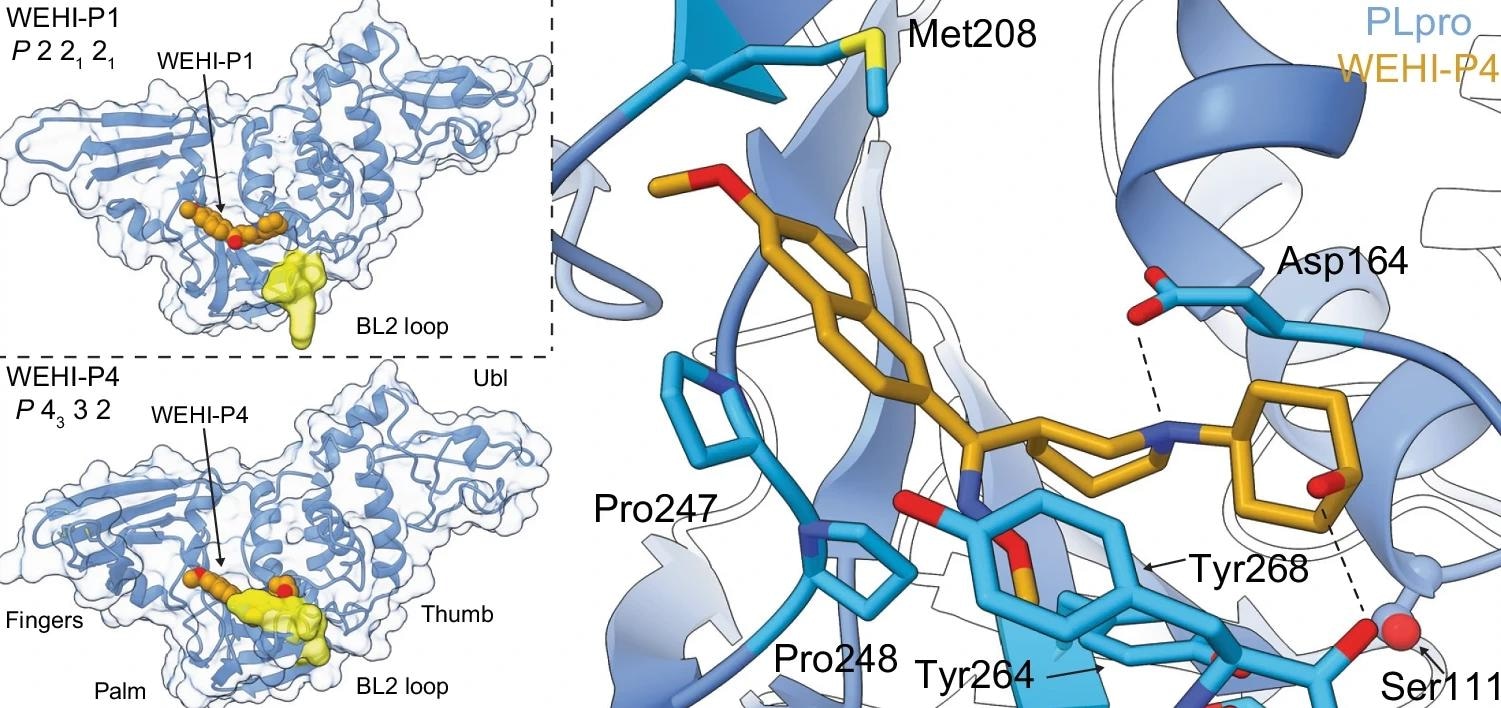A groundbreaking preclinical study reveals how targeting a viral enzyme with a new drug could prevent long-COVID complications, offering hope for millions and a powerful tool for future coronavirus threats.
 Study: A novel PLpro inhibitor improves outcomes in a pre-clinical model of long COVID
Study: A novel PLpro inhibitor improves outcomes in a pre-clinical model of long COVID
Over 77 million people globally have experienced lingering symptoms after recovering from coronavirus disease 2019 (COVID-19), yet an effective and reliable prophylactic measure for long coronavirus disease (long COVID) remains elusive.
In a recent preclinical study published in the journal Nature Communications, a team of researchers in Australia investigated a new antiviral compound that may prevent these long-term effects of long COVID-19. This novel antiviral compound, which targets the viral enzyme papain-like protease (PLpro), could potentially represent an early-stage preclinical candidate for the first direct treatment for long COVID-19, bringing hope to millions whose daily lives are impacted by this disease.
Long COVID
Severe acute respiratory syndrome coronavirus 2 (SARS-CoV-2), the etiological agent of COVID-19, has infected hundreds of millions worldwide, with effects reaching far beyond the initial illness. Many people who recover from mild infections continue to suffer from long-lasting symptoms such as fatigue, brain fog, lung issues, and heart problems. This condition is known as long COVID or post-acute sequelae of COVID-19 (PASC), affecting roughly one in three non-hospitalized patients.
Although vaccines and current antiviral drugs reduce severe illness and death, they do not protect against these persistent symptoms. Most existing treatments focus on the virus’s main protease (Mpro), but another viral enzyme, PLpro, also plays a crucial role in viral replication and suppressing the immune response. Despite this, PLpro remains an underused drug target.
About the Study
To develop a new antiviral that targets the PLpro enzyme of SARS-CoV-2, the researchers screened over 400,000 small molecules using a high-throughput assay designed to detect PLpro activity. Sixteen promising compounds were identified and further validated using surface plasmon resonance to assess binding and selectivity.
The team improved the most promising candidate, WEHI-P1, by altering its chemical structure to create WEHI-P4, which showed strong activity in lab-based biochemical, cellular, and antiviral tests. They determined the compound's binding mechanism through X-ray crystallography and found that it engaged a new binding pocket on PLpro not used by existing drugs.
Further structural refinements led to WEHI-P8, which displayed favorable drug-like properties, including potent PLpro inhibition, good bioavailability, and minimal interaction with human enzymes that could cause side effects.
The researchers then tested WEHI-P8 in preclinical mouse models of COVID-19, including models mimicking both mild and severe disease and a mouse model that closely mimics long COVID symptoms. Behavioral assessments and tissue analysis were also included in the study to evaluate cognitive function and organ-specific pathology following recovery from infection.
Key Findings
The study found that targeting the viral enzyme PLpro with a new compound, WEHI-P8, significantly reduced both acute and long-term COVID-19 symptoms in preclinical models. In mice infected with SARS-CoV-2, treatment with WEHI-P8 lowered viral load, prevented weight loss, and reduced lung inflammation.
Compared to standard treatment consisting of Paxlovid-like therapy, WEHI-P8 was more effective in reducing immune cell infiltration and cytokine production, even without requiring a booster drug like ritonavir.
In a long COVID mouse model, animals that survived infection displayed prolonged lung hemorrhage, immune cell buildup, and tissue scarring up to three months later. They also developed heart, gut, and brain abnormalities, including inflammation and cognitive decline.
However, WEHI-P8 treatment significantly reduced these outcomes. Treated mice showed improved lung tissue health, reduced inflammation markers in the brain, and better performance in memory tests. Notably, female mice, who showed worse symptoms, responded well to the treatment, reflecting the sex-specific differences that have also been observed in long COVID cases in humans.
While these preclinical findings bring hope to the millions suffering from long COVID, they remain experimental and untested in humans. The novel antiviral compound also displayed cross-reactivity with other coronaviruses, suggesting potential use for future outbreaks.
However, some symptoms, such as heart and gut changes, were not fully reversed in the mouse models, highlighting the complexity of long COVID. Moreover, while WEHI-P8 showed promising results when given early, its effectiveness when administered later in the disease course was not tested, limiting the conclusions about treatment windows and emphasizing the need for more research.
Dr. Marcel Doerflinger, one of the corresponding authors of this study and the head of one of the laboratories that constitutes this research team, stated, “Our pre-clinical studies have achieved something no currently approved therapy has done to date — preventing the most debilitating symptoms of long COVID in mice.”
Conclusions
Overall, the results showed that the novel PLpro inhibitor, WEHI-P8, can reduce viral replication and prevent long-term complications of COVID-19 in animal models. It performed better than current treatments, such as Paxlovid, did not require additional drugs to work effectively, and had a lower risk of interference with other medications. By targeting a different viral enzyme, this compound offers a preclinical strategy to treat both acute SARS-CoV-2 infections and long COVID.
Journal reference:
- M. Bader, S., Calleja, D.J., Devine, S.M. et al. A novel PLpro inhibitor improves outcomes in a pre-clinical model of long COVID. Nature Communications 16, 2900 (2025). DOI:10.1038/s41467-025-57905-4, https://www.nature.com/articles/s41467-025-57905-4